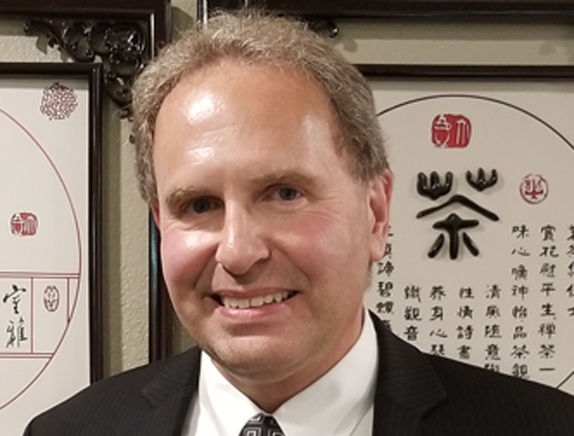David Edick wants to be your next Congressman.
Registered as No Party Preference, the self-described global political economist is the former owner of California Trading and Industrial Corporation where he worked with international food and beverage exports in Russia.
At 57, he has also worked as executive vice president with Cortez Seafoods, exporting Mexican seafood products to Asia and Europe and is past president of the San Diego World Affairs Council. To date, he has contributed just over $1,400 to his self-funded campaign.
Out of the seven candidates who are vying for Duncan Hunter’s seat in Congress, Edick is one of only five who live within the 50th district, which runs south from Temecula through most of unincorporated east San Diego county.
He tenses slightly when he is asked why he is running for Congress and says that he is not fond of what he refers to as “illusion and delusion” before trailing off with a thoughtful pause.
“I’ve been involved in the international space with business politics, NGO, and I have a sense of what it’s like to work with people to get something done. This district needs that right now,” Edick said.
Leaning forward on a table, wearing the crisp, white shirt of a man about to give a boardroom presentation, he rattles off statistics on federal funding like concern over the national debt keeps him up at night.
“We’re spending about 18% of GDP, our national income on health care and the next group of countries is around 12% so you’re spending 6% more per capita on healthcare. Those that are spending the money are disconnected from those who are consuming the medical services. The people who are making out are the world of healthcare providers, administrators, 6% of GDP? We could do a lot,” Edick said.
Edick leverages his international experience and says that he has a clear perspective on the challenges in the United States, then pragmatically addresses whether it is realistic to propose massive changes to our nation’s healthcare system.
He says he is, at heart, a global political economist and that he believes his international experience gives him a different perspective on American policy.
“A lot of my experience is working with the Russians commercially, with non-profit sister cities for 30 years, World Affairs Council here in San Diego, seafood export business out of Mexico… However, my training, if you will, is on the finance side,” Edick said.
Edick says his experience in working with the public leads him to believe that partisanship is not as challenging as fragmentation when it comes to the challenge of navigating divisions between a two-party system.
“Everyone in public office gets to face the challenge of how to compromise without selling out, not just one’s supporters but selling out from the character perspective… Principles matter and viable policy matter and politics matter,” Edick said.
Looking locally, he says San Diego needs to keep doing what it is doing to combat human trafficking and cites the work being done by Ami Carpenter through the San Diego County Advisory Council on Human and Child Sex Trafficking as admirable. Edick says he is especially concerned for at-risk adolescent girls and that the topic reaches beyond law enforcement into student-counseling ratios at local middle schools.
“Really, the domestic trafficking is a bigger issue than the international. How to reach young teenagers, middle-schoolers, create a safe space for them in what may be a toxic situation. Having counselors in schools— the idea that we have one counselor for 500, 1000, well, you get what you pay for out of that,” Edick guffaws.
As for gun control, Edick says that he grew up in a rural environment where guns were used for hunting and given great respect but that he does not believe there is any place in our society for military-style assault weapons.
“It’s legal, its lawful and socially acceptable to engage with firearms for target practice, for hunting, for protection in the home… but the idea that we’re going to resolve this with background checks and mental health is an illusion. When I deal with kids these days, high school kids, one of the top fears they have is that at their school there will be mass shooting.” Edick says.













